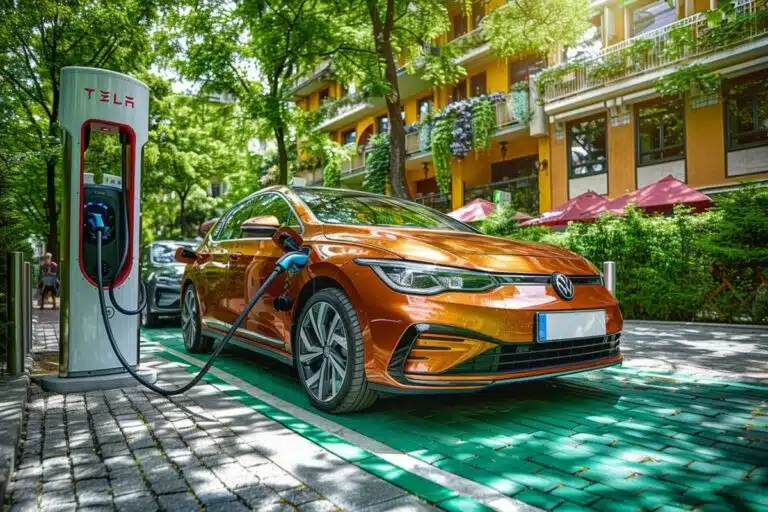Ford criticizes the UK stance on its transition to electric vehicles

The delay in phasing out internal combustion engines causes discontent in the automotive industry
The recent decision by the British Prime Minister to postpone the end of combustion engines in the United Kingdom has generated a strong discontent among car manufacturers, with Ford being one of the most critical voices in this regard. Three years ago, under Boris Johnson’s mandate, the goal was set for 100% of the vehicles in the country to be electric by 2030. The American brand believes this delay is detrimental to the sector.
Ford calls for ambition, commitment, and consistency from the British government
Lisa Brankin, managing director of Ford in the UK, states that the company needs three things from the British government: ambition, commitment, and consistency. Ford has heavily invested in the British market, believing that the transition to electric vehicles represents the greatest industrial transformation in over a century.
- Ambition: To drive short-term supportive policies for the electric vehicle market.
- Commitment: To invest in the research and development of clean technologies, such as hydrogen vehicles.
- Consistency: To maintain and strengthen incentives to facilitate consumer purchases of electric vehicles.
Ford bets on hydrogen and increases its investments in the UK
Currently, Ford is working on the development of hydrogen-powered vehicles in British territory. Additionally, over the past year, they have increased their investment in the Halewood factory to €420 million to adapt it for the production of electric vehicles. These decisions highlight the American brand’s commitment to sustainable mobility and its interest in the English market.
The high cost of living and lack of incentives hinder the adoption of electric vehicles
Ford’s stance on the British government’s postponement is also due to factors such as the high cost of living in the UK and the insufficient amount of incentives for those consumers who want to acquire an electric vehicle. The lack of government support could further hinder this transition process toward cleaner and more efficient mobility, which not only affects manufacturers like Ford but the country’s automotive industry as a whole.
Risks and opportunities for the British automotive industry
The statements from the Prime Minister and the concerns expressed by Ford highlight the challenges and risks facing the UK automotive industry on its path towards electrification. On one hand, if action is not taken decisively and quickly, it is possible that other countries will outpace this technological race, leaving the British market behind.
On the other hand, the country must face a complicated and uncertain economic situation, which complicates the attraction of foreign investments to support the development of its electric vehicle sector. In this context, Ford urges the British government to make greater investments and to maintain consistent policies in favor of sustainable mobility.
The need for a comprehensive and collaborative strategy
Ford and other automotive brands are seeking that the UK government adopts a more strategic stance, focused on both promoting internal innovation and fostering international cooperation. Only in this way will it be possible to achieve environmental objectives and ensure the prosperity of the automotive sector in the near future.
Conclusions
The delay announced by the British government in phasing out internal combustion engines has generated tensions in the automotive industry, with Ford openly expressing its criticisms and concerns. The American brand seeks greater commitment and consistency in government policies to facilitate the adoption of electric vehicles, while also demanding concrete actions to address challenges such as the high cost of living and the lack of incentives in the country. This situation poses a series of risks and opportunities for the British automotive industry, as well as the urgent need to implement a comprehensive and collaborative strategy in favor of sustainable growth.






